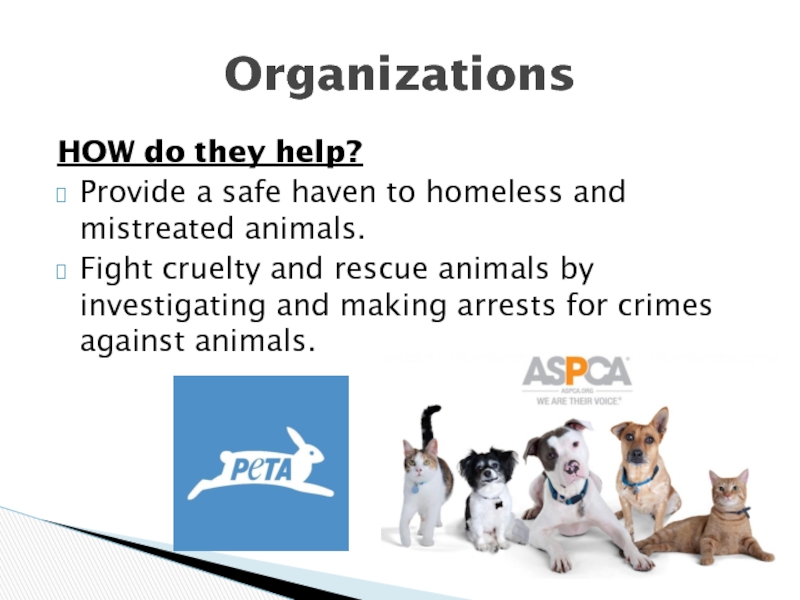The battle against animal cruelty is one that requires both tenacity and an informed approach. Too often, individuals feel helpless, observing instances of cruelty but unsure where or how to intervene effectively. While the world can seem inundated with images of suffering creatures, understanding the multifaceted nature of animal cruelty can ignite a passion for change. There are numerous avenues through which individuals can contribute to the alleviation of this pressing issue.
Advocacy Through Education
Education is a potent tool in the arsenal against animal cruelty. Knowledge not only empowers individuals but also equips them to inform others. Schools and community organizations can host workshops focusing on animal rights, welfare, and the ethical treatment of animals. By disseminating information about the impact of neglect, abuse, and exploitation, communities can cultivate a culture of compassion. Activities could include guest speakers from local animal shelters or featuring documentaries that highlight the plight of abused animals.
Additionally, individuals can leverage social media platforms to share educational content. Infographics, articles, and videos that elucidate the statistics and narratives surrounding animal cruelty can generate awareness and social discourse. By spreading the word, the potential for generating empathy and inspiring action increases exponentially.
Report and Document Cruelty
One of the simplest yet most effective actions individuals can undertake is to report suspected cases of animal cruelty. Many people may witness acts of cruelty but feel apprehensive about intervening directly—a natural instinct. However, reporting to local authorities or animal control can initiate the necessary investigations. Take the time to document incidents meticulously. Capture photographs, videos, or written accounts, as these pieces of evidence can be invaluable during investigations. This judicial approach not only emphasizes that animal cruelty is unacceptable but also holds offenders accountable.
Support Local Animal Shelters
Local animal shelters play a crucial role in combating animal cruelty. They often take in abused or abandoned animals, offering them care and rehabilitation. Supporting such organizations can take various forms. Volunteer your time; many shelters require assistance ranging from animal care to administrative tasks. Additionally, financial contributions, whether one-time donations or continuous support, can help shelters maintain their operations and expand their outreach programs. Organizing fundraisers within the community, such as charity walks or bake sales, can also provide substantial backing.
Engage in Community Initiatives
Communities can significantly impact animal welfare when residents come together. Initiatives aimed at promoting responsible pet ownership can mitigate issues that lead to cruelty. Organizing events such as spay/neuter clinics reduces overpopulation, which can often lead to neglect and abandonment. Collaborating with local veterinarians to provide subsidized veterinary care reinforces the importance of health and well-being in all pets.
Encouraging the creation of ‘Adopt, Don’t Shop’ campaigns highlights the importance of adopting animals from shelters rather than purchasing them from breeders or pet stores. This practice not only combats the cycle of homelessness in animals but also elevates awareness about animal needs within the community.
Engage in Digital Activism
In the digital age, activism has taken on new forms. Online petitions targeting policies that protect animals are frequently circulated. Signing and sharing these petitions can amplify the call for legislative change, demanding stricter penalties for offenders of animal cruelty. Furthermore, engaging with companies that advocate for animal rights and supporting cruelty-free products cultivates a market that prioritizes welfare and ethical treatment.
Using platforms like Change.org or Care2 to mobilize communities around specific cases of cruelty can lead to effective campaign outcomes. Online pressure can compel institutions to act decisively, whether through legal avenues or policy changes.
Foster Empathy and Compassion
Ultimately, fostering an empathetic society is vital. Simple conversations that challenge preconceived notions about animals can cultivate deeper feelings of compassion among individuals. Encourage discussions about the emotional capabilities of animals, their ability to feel pain, joy, and suffering. Share stories that illustrate the bonds between humans and animals, emphasizing mutual dependency and respect.
Parents can nurture compassion in children by exposing them to positive interactions with animals. This can include visits to animal sanctuaries or engaging in reading materials that depict animals as sentient beings deserving of respect. Children educated in empathy are less likely to accept cruelty as normal behavior.
Support Legislation for Animal Welfare
Another significant avenue for change is through active participation in local legislation. Understanding current animal welfare laws is crucial. Advocate for stronger legal protections and support lawmakers who prioritize animal rights through outreach and public advocacy. Your voice carries weight, and when raised in unison with others, it can inspire palpable change.
Attending town hall meetings, joining advocacy groups, and communicating with elected officials are effective means of ensuring that animal welfare remains a focus within governmental discourse.
Conclusion
Creating a world where animal cruelty is no longer tolerated demands collective action and an unwavering commitment to change. By educating oneself and others, advocating for animal rights, supporting local shelters, and engaging in community initiatives, individuals can play a crucial role in eradicating animal cruelty. Lasting change begins within, and each person has the potential to be an advocate for those who cannot speak for themselves. The collective power of informed, compassionate individuals is an unstoppable force in the ongoing fight against animal cruelty.








